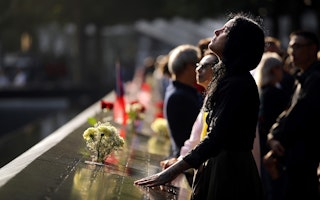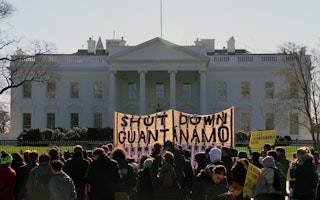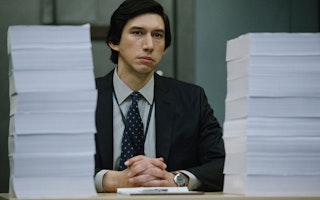For Diplomacy That Looks Like the United States, Civil Society Must Lead by Example
By Alex Johnson & Stefanie Brown James

We both served in senior positions in government and on political campaigns. We not only know what it feels like to be the only two people of color in a roomful of middle-aged white men but have seen—up close, in real time—how a lack of diversity can lead to flawed policies and missed opportunities.
Unfortunately, a problem that has persisted in Democratic and Republican administrations is getting worse. At the State Department, in particular, many career foreign service officers have retired or left in frustration; pushed aside by a new administration which has repeatedly expressed skepticism—bordering on hostility—toward career civil servants. The number of ambassadors of color and/or who are women has dropped significantly since the 1990s. Too many senior foreign service officers have been pushed aside and made to do relatively junior administrative tasks—such as processing Freedom of Information Act (FOIA) requests.
To improve U.S. foreign policy decision-making and make our country more secure, we need a State Department and a national security workforce that is more diverse. Our diplomacy should look less like the cast of Mad Men and more like today’s America.
The Open Society Foundations had this goal in mind when, last month, we partnered with Vestige Strategies to launch a new report: Advancing Diversity and Inclusion in the Foreign Policy Sector. The report’s recommendations are concrete and actionable, and the goal is to draw from one of the United States’ greatest resources—its vast and interlocking network of diverse communities—to strengthen U.S. diplomacy.
Here is an issue where civil society can—and must—lead the way. Think tanks, NGOs, grassroots organizations—these are the incubators for the policy and management experts of the future; these are the places where policy knowledge and management skills are developed, where promising young people learn how to be effective public servants. We believe that if civil society leadership looks like America, then government leadership will follow.
It’s common sense for civil society groups to address their own lack of diversity. Unfortunately, however, research has shown that they, too, are far from perfect in this respect. Precious little information exists, for example, on workforce and senior leadership diversity among U.S. international affairs think tanks. What we can tell you from our experience, though, is that think tank roundtables and panel discussions often mirror the inclusion deficit in government. Few such events are led by women of color or acknowledge racial or ethnic identities in what makes up their diversity and inclusion programming.
Thankfully, addressing these shortcomings will not require the reinvention of the wheel. Members of the private sector are beginning to embrace such efforts—not just because it’s the right thing to do, but because they realize that increasing diversity is an efficient way to maximize profits. In fact, according to a McKinsey & Company report, companies in the top 25 percent for ethnic and cultural diversity on executive teams are 33 percent more likely to have industry-leading profitability.
So, what does the Advancing Diversity and Inclusion in the Foreign Policy Sector report recommend to increase diversity within civil society organizations? Among other ideas, it suggests:
- implementing training on the harms of bias—both conscious and unconscious—for all staff at international affairs think tanks and NGOs;
- building a diverse and inclusive speakers bureau for foreign policy experts;
- developing a tracking mechanism to monitor panelist, presenter, and awardee demographics for the events and policy discussions convened by civil society;
- recruiting and preparing diverse senior staff to lead foreign policy organizations; and
- collaborating across foreign policy institutions to create a standard culture for diversity and inclusion within the field.
By advancing these objectives, civil society can empower a diverse pool of experts to make sure that the progress made on the issue of diversity in recent decades is not reversed, while also improving cultural competency for U.S. foreign policy in the future. The United States—and, indeed, the world—is more diverse and interconnected than ever; it’s time for America’s foreign policy establishment to catch up.
Until February 2019, Alex T. Johnson was the senior policy advisor for Europe and Eurasia at the Open Society Foundations in Washington, D.C.
Stefanie Brown James, the CEO and founding partner of Vestige Strategies, is the former national field director for the NAACP.


